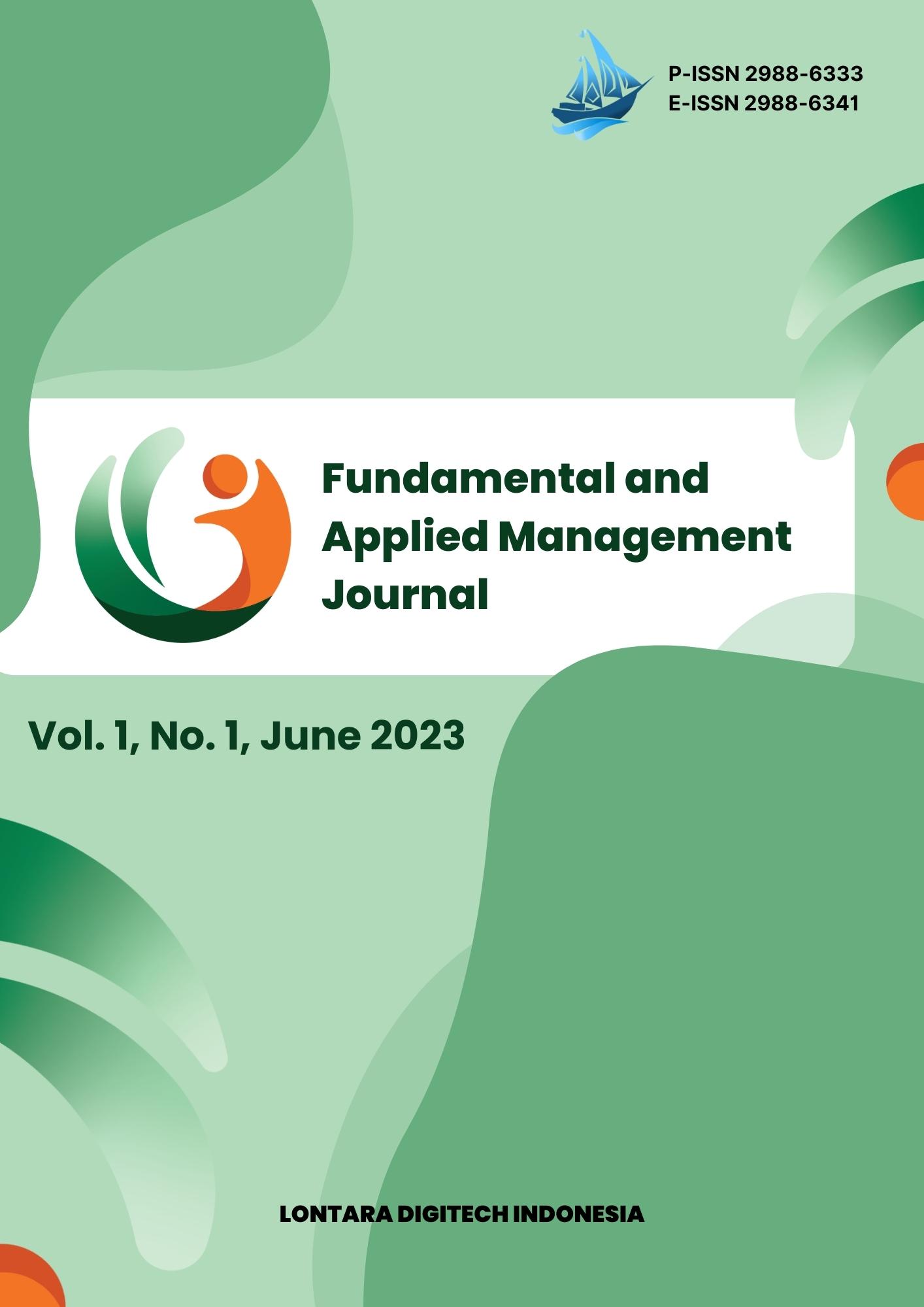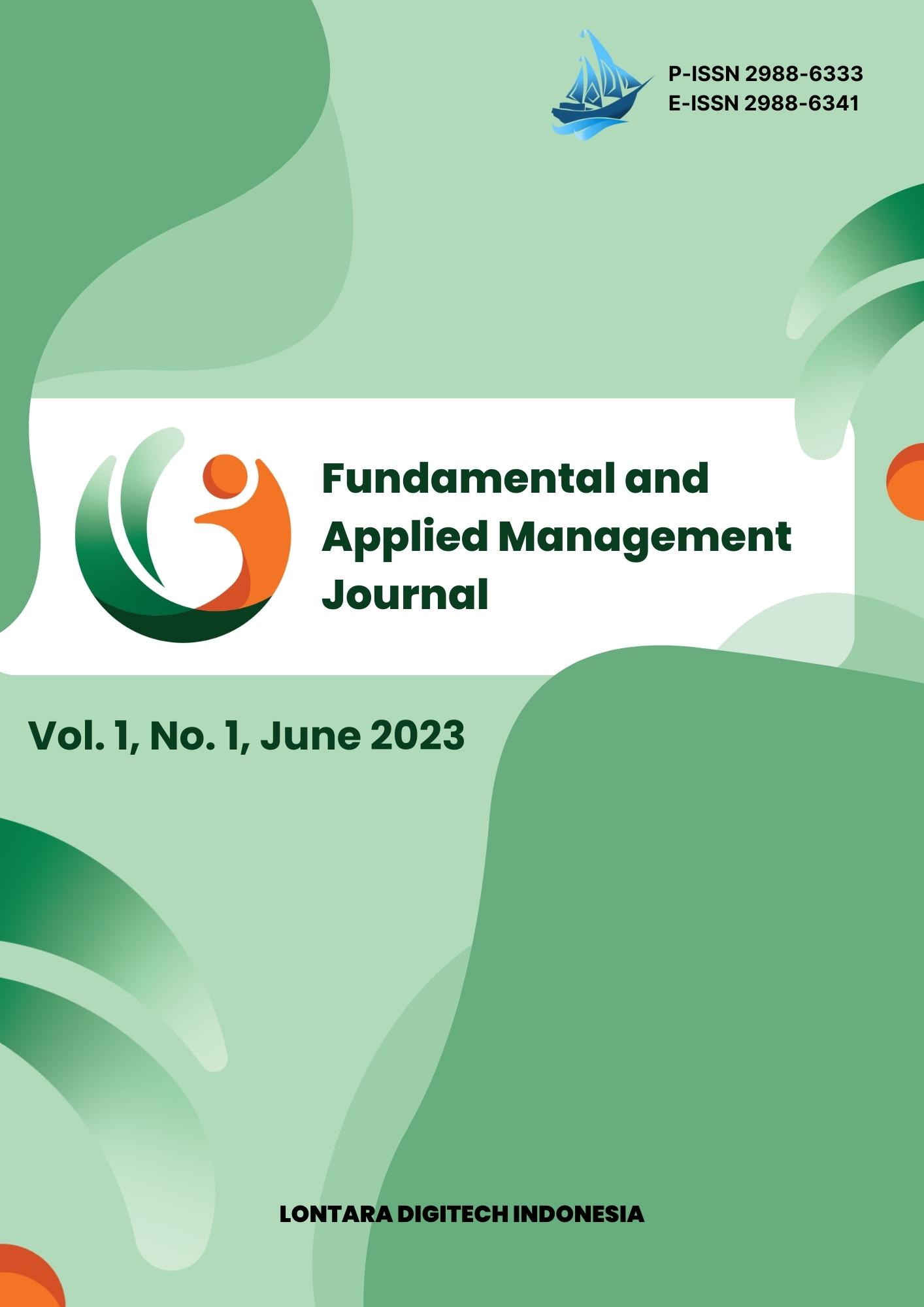Investment Choices in the Young Generation: A Behavioral Economics Approach Using Prospect Theory
DOI:
https://doi.org/10.61220/famj.v2i1.2244Keywords:
Investment Choices, Young Generation, Behavioral Economics, Prospect TheoryAbstract
This study aims to explore the psychological and behavioral factors that influence investment decisions among students of the Faculty of Economics and Business at UNM using the Prospect Theory approach. This research is descriptive and utilizes a quantitative methodology, with the population consisting of students from the Faculty of Economics and Business at UNM. Data were collected using a questionnaire designed based on the principles of Prospect Theory in behavioral economics. The data analysis was conducted using statistical techniques, including descriptive statistical tests, to identify the factors influencing students' investment decisions. The findings reveal that students' financial decision-making behavior is significantly influenced by various psychological factors. The research indicates that students tend to be consistent in their financial decision-making processes, demonstrating a notable influence of behavioral biases. Additionally, the study highlights that common behavioral biases, such as risk aversion and loss aversion, are prevalent among students when making investment decisions. These results emphasize the importance of understanding the psychological aspects of investment choices, suggesting that educational initiatives should focus on improving students' awareness of these biases to foster more informed and rational investment behavior.
References
Dianti, Y. (2017). Kinerja. Jurnal Bisnis Dan Ekonomi, 5–24.
Hidayati, A. N. (2017). Investasi: Analisis Dan Relevansinya Dengan Ekonomi Islam. Jurnal Ekonomi Islam, 8(2), 227–242.
Istiqomah, A. (2023). A Literature Review: Keputusan Investasi dan Faktor Yang Mempengaruhi. Jurnal Ilmiah Ilmu Pendidikan, Ilmu Ekonomi, Dan Ilmu Sosial, 17(1), 173–178. https://doi.org/10.19184/jpe.v17i1.39359
Martias, L. D. (2021). Statistika Deskriptif Sebagai Kumpulan Informasi. Fihris: Jurnal Ilmu Perpustakaan Dan Informasi, 16(1), 40. https://doi.org/10.14421/fhrs.2021.161.40-59
Matruty, D. J., Borolla, J. D., & Regar, E. (2021). Determinan Keputusan Mahasiswa Dalam Berinvestasi. PUBLIC POLICY (Jurnal Aplikasi Kebijakan Publik & Bisnis), 2(2), 331–349. https://doi.org/10.51135/publicpolicy.v2.i2.p331-349
Maya Nur Lestari. (2023). Kajian Literatur: Faktor Yang Berpengaruh Terhadap Keputusan Investasi Mahasiswa. Jurnal Ekonomi Bisnis Dan Akuntansi, 3(3), 226–235. https://doi.org/10.55606/jebaku.v3i3.2889
Otoritas Jasa Keuangan. (2020). Mengenal Otoritas Jasa Keuangan dan Industri Jasa Keuangan. Otoritas Jasa Keuangan, 35.
Putri Ramadhani, A., Afifah Septyasari, I., Nur Hasannah, F., & Kustiawati, D. (2022). Investasi ditinjau dari Perspektif Ekonomi dan Ekonomi Islam. Jurnal Indonesia Sosial Sains, 3(12), 1579–1589. https://doi.org/10.36418/jiss.v3i12.746
Ramadhani, R., Aini, A. F., & Hidayah, N. (2023). Perlindungan trader dalam platform investasi online di indonesia: studi kasus platform binomo. Wacana Paramata Jurnal Ilmu Hukum, 21(3), 87–93.
Sobita, N. E., Harori, M. I., Satya, R., Paluvi, A., & Aini, I. (2023). Peluang Gen-Z Dalam Meraih Kesuksesan Melalui Investasi Saham. Peluang Gen-Z Dalam Meraih (Nindya Eka Sobita, Dkk.) Nanggroe: Jurnal Pengabdian Cendikia, 430(3), 2023. https://doi.org/10.5281/zenodo.8099800
Tirta Dewi, N. P. A., Yadnyana, I. K., Yasa, G. W., & Wirajaya, I. G. A. (2022). Faktor-Faktor Yang Mempengaruhi Penggunaan Fintech Lending Pada Generasi Milenial. E-Jurnal Ekonomi Dan Bisnis Universitas Udayana, 11(05), 557. https://doi.org/10.24843/eeb.2022.v11.i05.p05
Downloads
Published
Issue
Section
License
Copyright (c) 2024 Maria Reski, Andi Amrullah (Author)

This work is licensed under a Creative Commons Attribution-ShareAlike 4.0 International License.













 Email: famj@lontaradigitech.com
Email: famj@lontaradigitech.com
